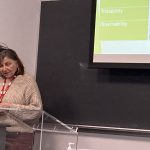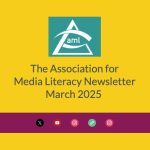Empowering Academic Integrity in an AI World: Building Student Skills and Confidence Through Strategic Teaching by Greta Smelko
Empowering Academic Integrity in an AI World: Building Student Skills and Confidence Through Strategic Teaching by Greta Smelko
The appeal for students to use AI to bypass original writing grows. Educators, as they have always done, must cultivate a classroom environment that encourages students to actively engage in learning that fosters growth. Our colleague Greta Smelko, AQ Part 2 graduate & Secondary Consultant in Ontario’s Brant Haldimand Norfolk Catholic District School Board, offers educators a comprehensive set of instructional strategies aimed at fostering academic integrity and encouraging the preservation of original thought and creation. She includes approaches such as getting to know students, using formative assessments, incorporating real-world connections, valuing both process and product, and implementing various assessment methods. These strategies foster a culture of integrity, enhance student learning, and most importantly they nurture critical thinking. (Note that “For”, “As” and “Of” learning are terms employed in Ontario’s Growing Success document.)
General Instructional Strategies
- Get to Know Your Learner – be mindful of student limitations and accommodations.
- Use Formative Assessments – observation and conversation
- Take a student-centred approach to instruction
- Consider Real-World Connections and Experiences – connect assignments to recent events, specific topics in the local community, the classroom and other subjects/topics
- Value Final Product AND Process- assess and reward process and transferable skills
- Incorporate learning strategies, related to the process of composition (e.g. planning and processing strategies, identified in the Thinking Category) in success criteria and rubrics to promote process and product.
- Integrate Flipped Learning Model – ask students to read and review at home then utilize class time to have students apply, demonstrate and perform activities and tasks in class.
Assessment FOR Learning
- Elevate process-based work – chunk written assignments with clear due dates for individual elements – use Observation and Conversation
- Students can document their progress through problem solving or journaling
- Collect process work, rough draft/story boards.
- Select Reference Material – require students to reference class material, teacher notes, class discussions or any other sources not available for free (e.g. EBSCO, Curio, Gale, Britannica)
- In-Class Assignments – write responses in class -brief responses to the kinds of questions you might give as homework.
- Short/frequent in-class quizzes to test, etc.
- Minute Papers – jot down responses to the day’s class session as a formative assessment or exit ticket.
- Oral Communication – allow students to write before talking and talk before writing
- conferences allow students feedback and for them to clarify their points.
- class discussions – face to face/voice recordings
- accountable talking structures – talking chips/jigsaws, etc.
Assessment AS Learning
- Peer Feedback – specific/scaffolded constructive peer feer feedback
- Social Annotation – comment feature in Word or Google
- Reflection and Self Assessment – make reflection and personal connections to learning a routine part of written assignments that is gradable.
- Self Reflection – what has the student learned? How do they explain their design choices and processes, their problem-solving, their strengths and areas for improvement and next steps?
- Self – Evaluation – high impact strategies that build student metacognition and agency.
- Annotated Bibliography – students reflect, explain and comment on their learning from each source.
Assessment OF Learning
- Engage diverse media – choice boards with multimodal text – audio file, podcast, video, speech – followed by brief reflection explaining their choices.
- Demonstration Tasks – “how-to” tutorial
- Engage visuals – students respond to images or videos in their assignments.
- Oral Communication – Accountable Talking – talking chips, socratic seminars, fishbowl discussion, sentence stem “Building on what____, said, …, “I would like to add/wonder if/share….” “research suggests….”
- Defensive Grading – Have students present what they feel their mark is on a task using evidence and connections from the success criteria/rubric
- Vary Writing Styles and Formats – formal academic essay writing is ONE type/ offer differentiation and student choice with RAFT tasks (Role, Audience, Format, Topic).
- Supply real-world writing samples/mentor text
- Design writing tasks that connect to students’ personal and classroom experiences.
- Consider ways to create authentic and varied audiences for student writing
- Follow-up to Written Task – pair writing pieces with a verbal Q&A to demonstrate their original work and authentic learning.
- Ask students to annotate their final product to explain intended effects of their writing and/or comment on peer annotations, OR annotate their bibliography.



